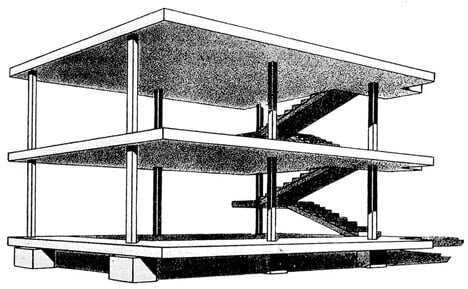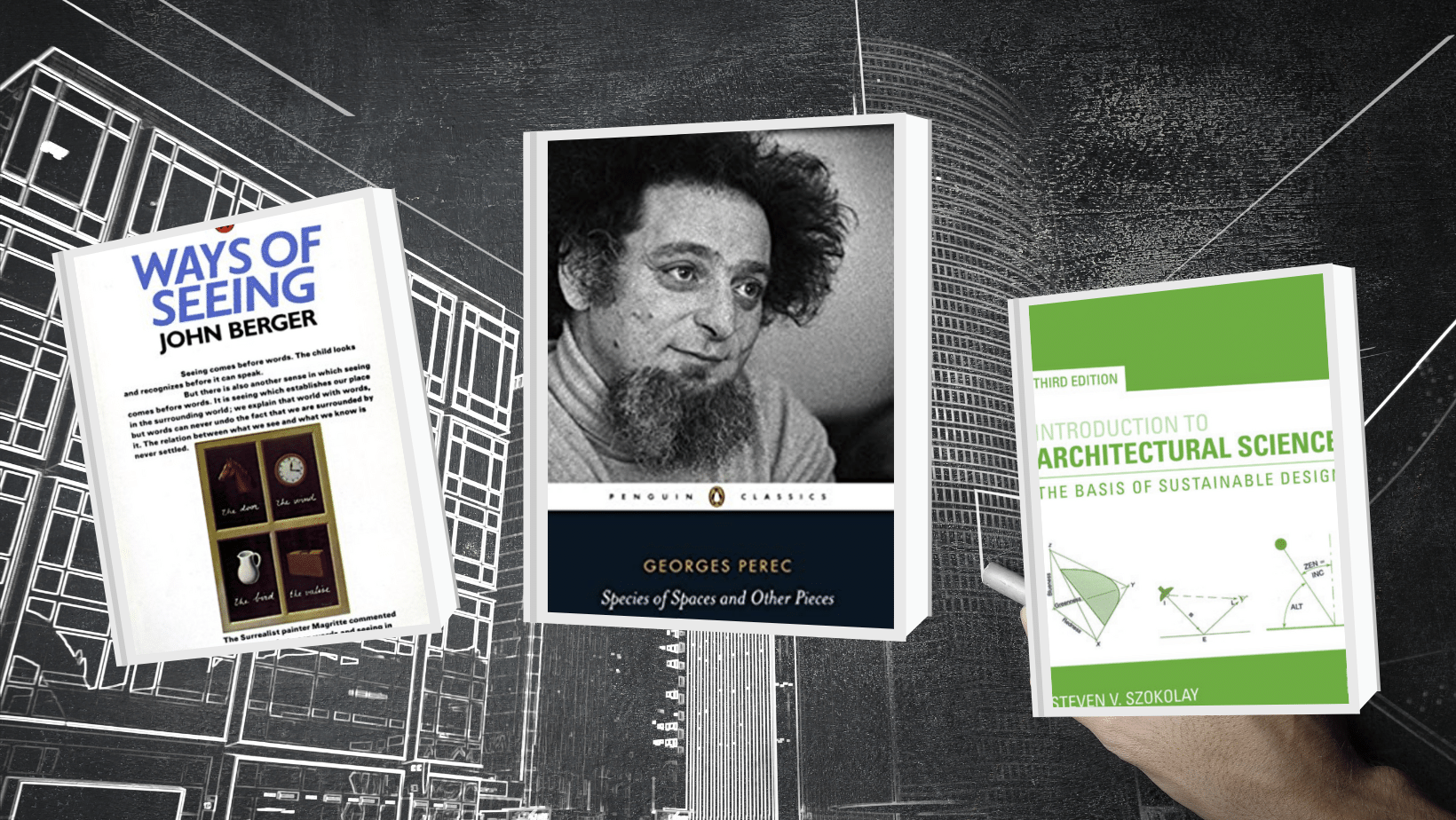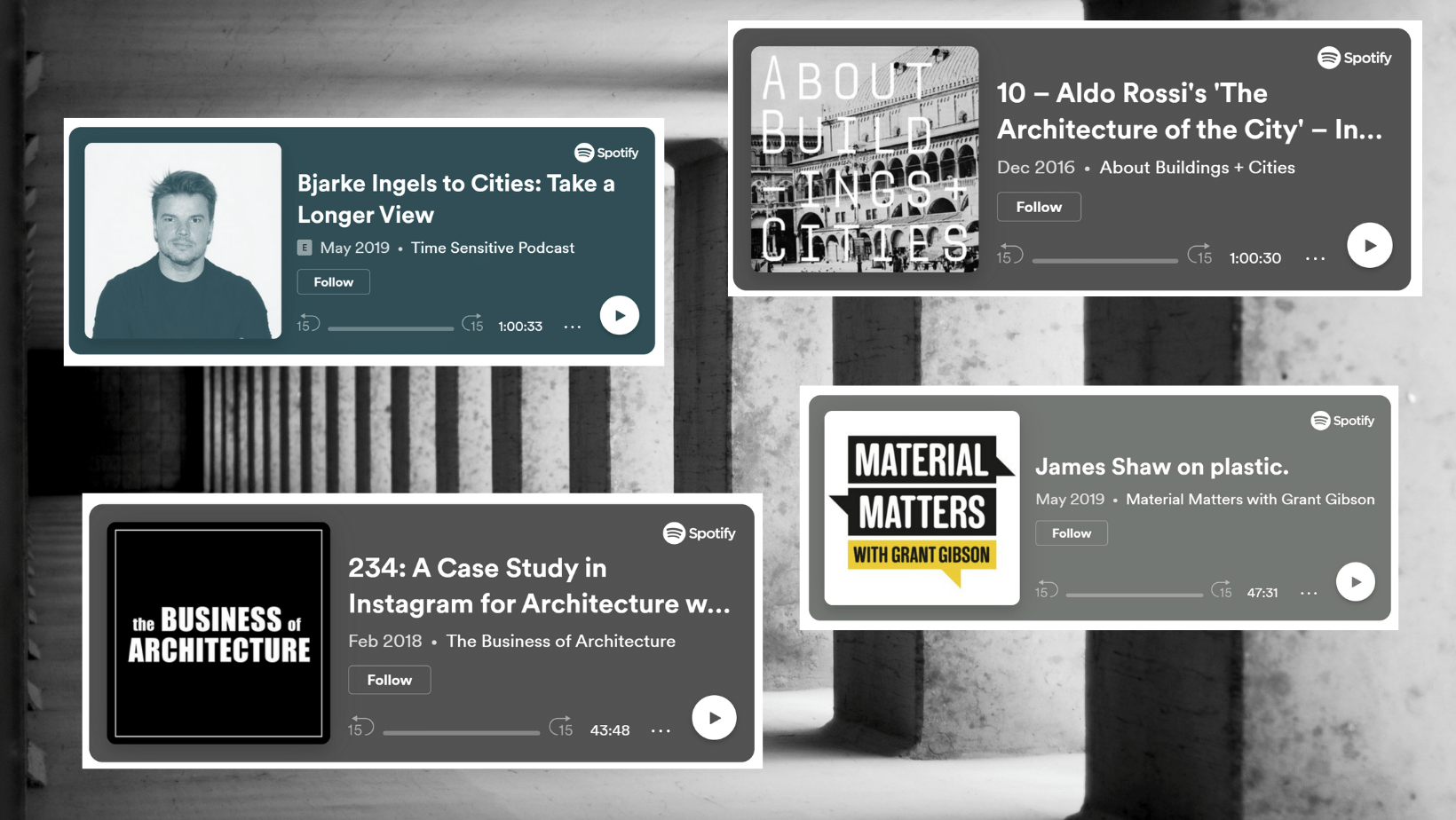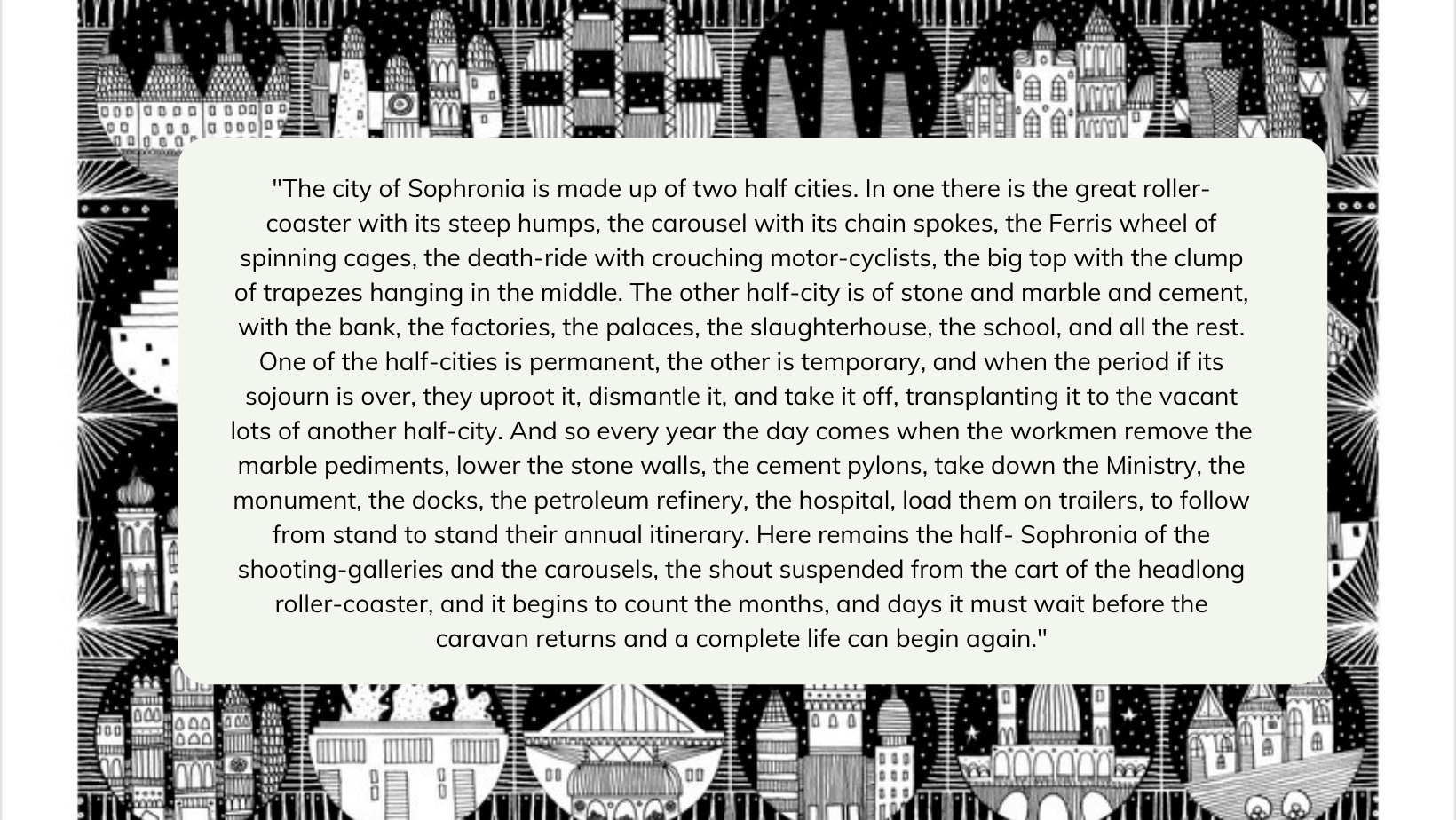Preparing for Architecture at University | A 2025 Guide
10 Tasks to Kickstart Your Reading, Personal Statement Writing and Interview Preparation
Many students do not consider applying for Architecture at university as they are not exposed to it at school. This is a huge shame as Architecture is a fascinating degree subject that opens doors to a myriad of exciting career paths: research, other creative fields such as Production or Graphic Design, environmentally responsible design/ sustainability, and of course the wide range of jobs within architecture itself: Landscape architecture, political architecture, restoration architecture, urban planning and design… This article aims to stimulate more students to consider the possibility of architecture as a degree subject and acts as a guide for those thinking of applying to the top UK University Architecture courses. U2 Tuition has a wonderful team of Architecture tutors, many of whom undertook the Cambridge Architecture degree, and offer support in all of the application components mentioned in this article: personal statement, Architecture Admissions Assessment, portfolio work and interview preparation.
So, what is Architecture at university?
Architecture is commonly thought of as the art and practice of designing and making buildings. However, it is so much more - the OED’s definition, “The art or science of building or constructing edifices of any kind for human use”, draws on the multifaceted nature of the subject. Architecture is both an art and a science - it bridges a whole array of different disciplines: Art, Design, Philosophy, Engineering and Mathematics to name a few. Research the modules available to you at the top universities for Architecture in the UK to understand the interdisciplinary nature of the degree e.g. The Cambridge Architecture course blurb states:
Our innovative design programme is balanced with outstanding teaching in the history and philosophy of architecture, contemporary culture and urbanism, as well as construction, structural design and environmental design.
In an article on the related field of Design Engineering on Minds Underground (our co-curricular division), U2 mentor, Joy, writes, “looking back in history, many ground-breaking innovations have happened at intersections of established disciplines”. Indeed, subjects which bridge the arts and sciences frequently present a fantastic opportunity for innovation, creative problem solving, lateral thinking and interaction with today’s global challenges.
Le Corbusier, Maison Dom-Ino, 1914. This unrealised project, one of the most famous images of modern architecture, encapsulates the wide-reaching nature of Architecture - how it can encapsulate complex social conditions, the importance of the invisible and the abstract etc. Read this article for more of an insight!
If you think an Architecture degree may be for you, thinking ahead towards your prospective application, here are your first two tasks:
Task 1: Come up with your own definitions of Architecture
Brainstorm an answer to the “What is Architecture?” question - this will serve you extremely well for personal statement creation and interviews. Articles such as this are great for helping you to form your own definitions and start thinking about different perspectives on architecture, the real vs. abstract, and the role of architecture in today’s society. This could easily be an opening interview question, so worth devising an answer that is nuanced, original and demonstrates you have researched and explored around the degree course in your own time.
What do you think of this definition?
Architecture, beneath all its limitations of engineering, safety, function, climate and economy, arouse us with designs in space and light achieved in the abstract (All About Architecture)
You could also check out Cambridge University’s HE+ Architecture resource, which offers a definition of architecture, as well as a rundown of the process to becoming an architect, and a range of resources to aid your preparation. E.g. Introduction to Architectural History or the Royal Institute of British Architects journal.
Important Note: The path to becoming a licensed Architect in the UK varies depending on the university selected as course formats and length differ. For example, whilst Cambridge’s course involves an undergraduate degree —> 12 months practical experience —> 2 years of postgraduate —> 12 further months minimum of practical experience, other universities may offer programmes where students work in practice during their study (e.g. Oxford Brookes’ RIBA Studio Programme), or a shorter sandwich course with the 1-year work experience in third year (e.g. Bath).
Task 2: “What motivates you to study Architecture?”
If you are considering Architecture as a degree, it’s important you are clear on your motivations for applying. It goes without saying that developing genuine and applied interests in studying architecture will be key to success in application. You will also want to think about your career goals, whether in academia or practice, and how the course will benefit your aspirations (these may change with time, but it is good to have an idea).
A great way to approach this is to develop an “elevator pitch” which you can leverage for your personal statement and interviews.
ELEVATOR PITCH
Use the following questions as starting points to structure your pitch:
Why Architecture?
What motivates you to study Architecture?
Why are you interested in this university or college (e.g. Cambridge, UCL, Bath)?
What is the difference between buildings and architecture?
What do you think is the biggest or most urgent challenge architects are facing in the industry?
Why YOU?
Tell me about your portfolio.
Recommend me an architect or a book about architecture that inspires you.
What would your friends describe as your top three qualities? Top three weaknesses?
Tell me a time when you overcome a challenge using those qualities. How would these qualities help you become a good architect/student?
What should you read/ research in preparation for Architecture personal statement writing and interview?
Downing College, Cambridge, have a fantastic reading list for prospective applicants that is split into two categories, “History and Theory” and “Construction, Structures and Environmental Design”: https://www.dow.cam.ac.uk/courses/architecture (some highlights are depicted above). You will also want to check out the Department’s wider reading list (including website and video/ lecture suggestions) here
TASK 3: Keep a book chart where you record books/ articles you have read that interest you. Note down the author and title, what the book is about, 2-3 interesting quotes to remember, key themes explored, your opinion (e.g. what you found surprising), how each text may relate to other things you have read or researched/ how some ideas in the book could be applied, and potentially an aspect of architecture described in the book that you hope to explore further through an Architecture degree
Read Modern Architecture: A Critical History (World of Art) by Kenneth Frampton, a brilliant survey of 20th-century architecture and its origins
Architecture Daily (A website of Architecture projects)
TASK 4: Keep a list of projects/ buildings that interest you - note down the building, the architect and why you like it (or don’t like it)
Podcasts are a fantastic way to engage with your subject of interest - Deezen provides a great rundown of some of the best architecture and design podcasts currently available: https://www.dezeen.com/2019/05/23/architecture-design-podcasts/
TASK 5: Whilst listening, try to note down your key takeaways so you have some notes to look back on when preparing your application. You can bring in material from the podcasts as evidence of wider subject exploration when asked both motivation-based questions and more abstract/ theoretical questions in your potential Architecture interviews. For example, the podcast, Failed Architecture, encourages us to rethink and redefine Architecture by looking at an array of case studies/ projects that stretch conventional definitions of what architecture is (e.g. exploring the architecture of data centres) and the space of the digital realm - you could bring in any of these case studies to discussion at interview to show that you have an awareness of how the study of Architecture has developed over time
TED Talks on Architecture, where “master architects share their vision for inspired buildings”, are another great way to engage in wider subject exploration if you are tired of reading!“ Talks range from “The Emotional Impact of Architecture” to “3 Ways We Can Redesign Cities for Equity and Inclusion”
TASK 6: Practise talking about buildings in detail. Where are these buildings? What are the different styles? What medium is being used to picture them?
A selection of podcast episodes recommended by Deezen
Once you have formed some key interests in the subject, you’ll want to think about how to structure your personal statement and bring in material you have researched to interviews. Here are some tips:
Ensure you don’t merely list texts you have read or podcasts you have listened to, without offering your thoughts/ analysis. You will also want to avoid turning your personal statement into an essay. Find a balance between keeping it personal and evidencing just how motivated you are to read, research and engage in the subject
Remember that if you have potential Architecture interviews, being able to build on/ extrapolate from content you have input in your personal statement will be important - make sure you don’t include everything you have done, keep some back for interviews!
TASK 7: Practise communicating what you have read/ researched out loud ahead of interviews. one way to do this is to engage in research exercises: Do some reading on a particular topic that interests you in Architecture, then present it to someone (or your mirror) in a Pecha Kucha format - this will help build your confidence and presentation skills specifically for architecture, as well as form the basis for the Literature component of the Personal Statement
Join our Architecture Summer School
9 sessions. Hosted by 1st Class Cambridge Architecture graduate & application mentor, Emilia. The course aims to help you form key interests in the subject in preparation for personal statement writing and interviews.
How do you succeed in Architecture university applications?
It is important that you are clear on the steps required to succeed in applying for Architecture at your chosen universities. Remember, the personal statement is just one part of the process - you’ll also have your submitted grades, portfolio submission or assessment task (e.g. UCL), test (Cambridge) and potentially interviews. Here are three important pointers to boost your chance of success in application:
For universities which request submitted work, ensuring you have a strong design portfolio that showcases independent thought, visual communication skills, and passion for arts and architecture, will be essential
When refining your art portfolio and personal statement, try to hone in on a specific subject focus area or two, so that you can articulate a personal narrative/ thread of interest that is consistent in your design portfolio, personal statement and interview answers
A further key skill to ace the application is communication: being descriptive yet succinct in documenting/ presenting your thought process in design and communicating what you see on a page.
To give you a taster of the interview process, we have included a real-life example interview question below, which asks you to describe a technical architectural drawing with incremental prompts. To practise your communication skills specifically for Architecture, practise verbalising your response to a teacher, tutor, family, friend or mirror!
Task 8: Tackle the interview question below
Train your eye for Architecture
Prompts:
Describe this drawing to me.
What is the subject of the drawing?
What types of perspectives can you see?
How do the perspectives relate to each other?
Which order?
Which architect?
Tips:
Give structured, descriptive answers (not just 1-2 sentences)
Speak through your thought process/ workings out loud
Listen to the interviewer’s prompts and ask for clarification if needed
To practise, train your eye by observing your environment - pay attention to impressive buildings, nature, furniture, and art
Task 9: A reading/ drawing task
Read Invisible Cities by Italo Calvino - Invisible Cities is an book collecting descriptions of imaginary cities, told in the perspective of Marco Polo
Use one of the short chapters of Invisible Cities as a prompt to create your own drawing of a city based on the written description. An example excerpt is posted below
You could create a personal sketchbook for your applications and add this drawing to it. The sketchbook could include life drawing sketches with pen, a photo journal, or solely act as an architecture sketchbook, mainly focused on technical drawings of buildings e.g. plans, sections, and notes on architectural reading/ lectures
This task will demonstrate to interviewers that you are able to take a verbal description and represent that visually - similar to architects translating ideas of clients/ planners/ residents into architectural designs.
Excerpt from Italo Calvino’s Invisible Cities
Task 10: Brainstorm answers to these further interview questions
How can digital design interact with the biological world to create sustainable architecture?
Describe a building that has influenced you as a designer/ aspiring architect
What do you think will be your biggest challenge as an Architecture student or in practice?
Which project from your portfolio are you the most proud of, or most representative of you? Why?
Conclusion
Explore, engage and enquire - if you do, you’ll be in a great position come Architecture applications. Differentiate yourself from other applicants by showing admissions teams what you enjoy, what you have learnt from your experiences and why you have a passion for architecture. If you have a genuine interest and a range of experiences to harness to show it, you will have a great chance of success.
Are You Thinking of Applying For Architecture at University?
Architecture Application Tutoring
U2 offers ad hoc sessions as well as wider Oxbridge Mentoring programmes (book a free consultation to discuss options). We have a great team of Cambridge Architecture tutors, all of whom have experience supporting students to the other top UK Universities for Architecture too.
The Process:
1) We suggest an Architecture graduate as a tutor and send their full CV for review. Our tutors are deeply familiar with the admissions process to study Architecture at the University of Cambridge and other top Russel Group universities, and are well-placed to guide you through personal statement curation, portfolio/ other submitted work, the entrance exam (if applicable) and interview process.
2) We typically suggest beginning with a 1.5 hour informal assessment/ taster session, where the tutor will informally assess the student’s current performance level for application, including test (if applicable) and interview. Following this, we issue a report with feedback, and structure a plan to best prepare.
3) U2’s approach for regular Architecture application sessions: The main focus of tutorial sessions will be to explore material that can be discussed in the personal statement and at interview. Tutors ensure each student refines their interests within Architecture, and is exposed to a range of approaches and new concepts, guiding students in their reading and wider subject exploration. Together, we build a case for the student, exploring their special interests in the subject and honing skills for the admissions test if applicable. Students will also be supported with their portfolio work.
Frequency of sessions can be decided between student and tutor. Students can take either ad hoc sessions, or we structure a full programme for preparation, which may include further co-curricular opportunities such as our Architecture Summer School, research projects and mock interview days. Architecture tutoring presents a wonderful opportunity to learn from and be inspired by some extraordinary academic minds. We would be delighted to support you through what can be a challenging, but hugely rewarding process.
Sessions from £75/h.








